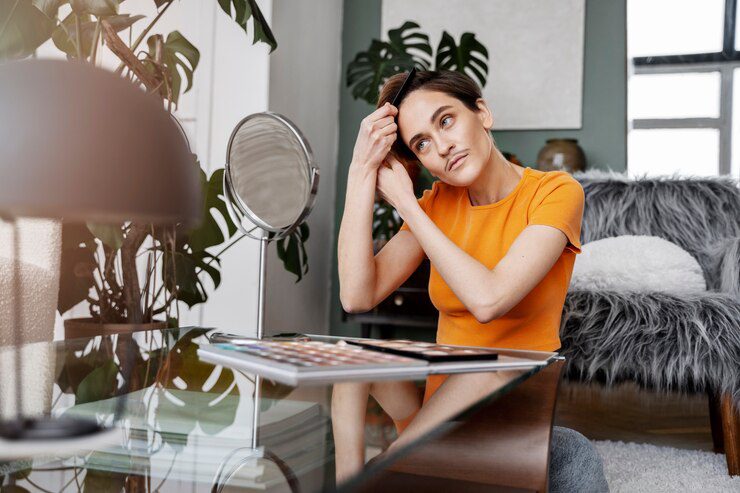We’ve all heard the saying “Beauty is in the eye of the beholder,” but the psychology of beauty tells a more complex story. Social norms, cultural ideals, and even our own self-perception influence how we view ourselves and others. This intricate dance between beauty standards and self-esteem can have a profound impact on our well-being. Let’s delve into the fascinating world of the psychology of beauty and explore its effect on our inner compass.
The Allure of the Ideal: How Beauty Standards Shape Us
Beauty standards are like cultural filters, shaping our perception of what’s attractive. These standards are constantly evolving, influenced by media, celebrities, and even social media trends. A study by the American Psychological Association (APA) found that 80% of women are dissatisfied with their appearance, often due to unrealistic beauty standards portrayed in the media. It’s like comparing ourselves to a highlight reel, feeling inadequate against a curated version of reality.
Here’s a table showcasing how beauty standards have evolved throughout history:
| Era | Ideal Beauty Standard |
| Renaissance | Full figures, pale skin, and rosy cheeks |
| Victorian Era | Frail figures, pale skin, and small waists |
| 1920s | Flappers with short hair, androgynous figures |
| 1950s | Hourglass figures, large breasts, and curvy hips |
| Modern Era | Thin figures, toned bodies, and symmetrical features (with variations based on culture and media) |
The Beauty Trap: When Ideals Become Insecurity
The pressure to conform to unrealistic beauty standards can trigger a cycle of insecurity. Constant comparisons to idealized images can lead to feelings of inadequacy and low self-esteem. This can present itself in several forms, such as:
Body dysmorphia: A preoccupation with perceived flaws, even when they’re not objectively noticeable. It’s like seeing yourself through a distorted lens, magnifying imperfections.
Unhealthy body image: A negative view of one’s own body, leading to unhealthy behaviors like dieting excessively or resorting to cosmetic surgery. It’s like being at war with your own body, rather than appreciating its unique beauty.
Social anxiety: Fear of judgment or rejection based on appearance, leading to social withdrawal and isolation. It’s like hiding behind a mask, afraid to show your true self.
Beyond the Surface: Redefining Beauty Through Self-Acceptance
Thankfully, the psychology of beauty is not all doom and gloom. There’s a growing movement towards self-acceptance and body positivity. It’s about celebrating our individual beauty, regardless of whether it fits into a narrow mold. Here are some ways to cultivate a healthier relationship with your appearance:
Focus on Inner Beauty: Cultivate kindness, compassion, and intelligence, qualities that radiate a genuine glow. It’s like developing your inner light, letting it shine through.
Challenge Beauty Standards: Question the media’s portrayal of beauty. Celebrate diversity, and the cultural influences on beauty standards and recognize that beauty comes in all shapes, sizes, and ethnicities. It’s like breaking free from the one-size-fits-all mold and appreciating the beauty spectrum.
Practice Self-Care: Focus on activities that enhance your physical and mental well-being. This can be anything from exercise and healthy eating to spending time in nature or pursuing hobbies you enjoy. It’s like nourishing your body and soul, fostering a sense of well-being that reflects outward.
The Power of Perception: Embracing Your Unique Beauty
The psychology of beauty reminds us that beauty is subjective and multifaceted. While external influences can shape our perception, it’s ultimately our own definition of beauty that matters most. So, break free from the societal beauty trap and embrace your unique beauty. It’s your inner confidence, kindness, and individuality that truly make you shine. Remember, you are beautiful, not because you fit into a mold, but because you are uniquely you.







